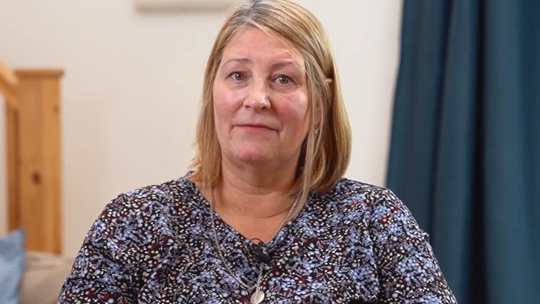Maintaining Your Mental Well-being as a Foster Parent
Foster parents invest significant time and effort in safeguarding the mental well-being and happiness of the children in their care. However, it's essential to consider: Who is taking care of the foster parents themselves?
Maintaining Your Mental Well-being as a Foster Parent
Foster parents play a vital role in caring for children and adolescents. A dedicated caregiver remains steadfast in their commitment to these young individuals, regardless of the challenges they may face. They strive to help vulnerable children heal from past traumas and provide the stability these children need, ensuring there's always a caring adult in their lives for support. Foster parents invest significant time and effort in safeguarding the mental well-being and happiness of the children in their care. However, it's essential to consider: Who is taking care of the foster parents themselves?

Being a foster parent can be immensely fulfilling, as it involves nurturing a child's healing and growth, witnessing them thrive and reach their potential. Nevertheless, children in foster care often come from tumultuous or abusive family backgrounds, which can manifest in their behaviour. Prioritising the mental well-being and happiness of these children is a substantial part of a foster carer’s responsibility. Fostering extends beyond providing shelter; it encompasses numerous meetings, appointments, and interactions with birth families, which can occasionally be emotionally challenging and demanding. The fostering journey is not always straightforward, making it imperative for foster carers to prioritise their mental health alongside that of the children they support.
But how can caregivers manage their own mental health when they dedicate so much time to providing exceptional care? In this article, we provide foster parents with practical self-care tips that can help them maintain a healthy state of mind while continuing their commendable work with children in need.

- Communicate with Your Fostering Agency or Social Worker: If you're facing difficulties, don't keep your emotions bottled up. If specific stressors, anxieties, or upsets are affecting you, reach out to your fostering agency. Addressing issues early prevents them from escalating and negatively impacting your own mental health. Remember, caregivers are human beings who also need a supportive ear and a shoulder to lean on from time to time.
- Set Aside Time for Yourself: Although your time might be more limited as a foster parent, it's essential to schedule moments for relaxation and activities you enjoy. Fostering isn't a job you can leave behind at 5 pm on a Friday and forget until Monday morning. Foster carers are essentially parents, and parenting is a 24/7 commitment. While it may be challenging to get away for a weekend or a full day, seize any available moments to engage in self-care. Read a book, call a friend for a chat, take a walk, or enjoy a bath. Taking care of yourself is not only an act of self-care but also an act of care for the children in your life, as your well-being directly impacts your ability to provide them with the best care.

- Connect with Other Foster Parents: Fosterplus organises regular outings for our foster parents, their existing children, and the children in their care. These events provide an opportunity for caregivers to meet and converse with others in similar situations. Sometimes, speaking to someone who understands your experiences and empathises with you can help shift your perspective towards a more positive outlook. While friends and family may struggle to fully grasp your situation, fellow foster parents can offer valuable support, demonstrating that you're not alone in your challenges and worries.
- Maintain a Journal: Journaling is an effective way to promote good mental health and well-being. If you're finding your role as a foster parent difficult or going through a tough period, consider writing down your thoughts and feelings in a journal. While talking is undoubtedly helpful, writing can also be therapeutic. You don't need to write every day, but during times of heightened stress, putting your thoughts on paper can provide relief. Journaling is a valuable self-care tool for both adults and children, offering catharsis during stressful times.
In conclusion, remember that you're a foster parent, not a superhero! If you're struggling with the challenges of this role, it's perfectly acceptable to seek help and support from your agency, friends, family, or other support services. You can't effectively care for others if you're running on empty, so prioritise your well-being to be the best foster parent possible for the children who depend on you.
Can't find what you're looking for?
By phone
One of our team is available to talk to you over the phone to answer any of your fostering queries.
Enquire online
You can get in touch by filling out our online enquiry form with any queries that you may have.
Your local team
Find contact details for your local office team. We’re always happy for you to pop-in and chat.





